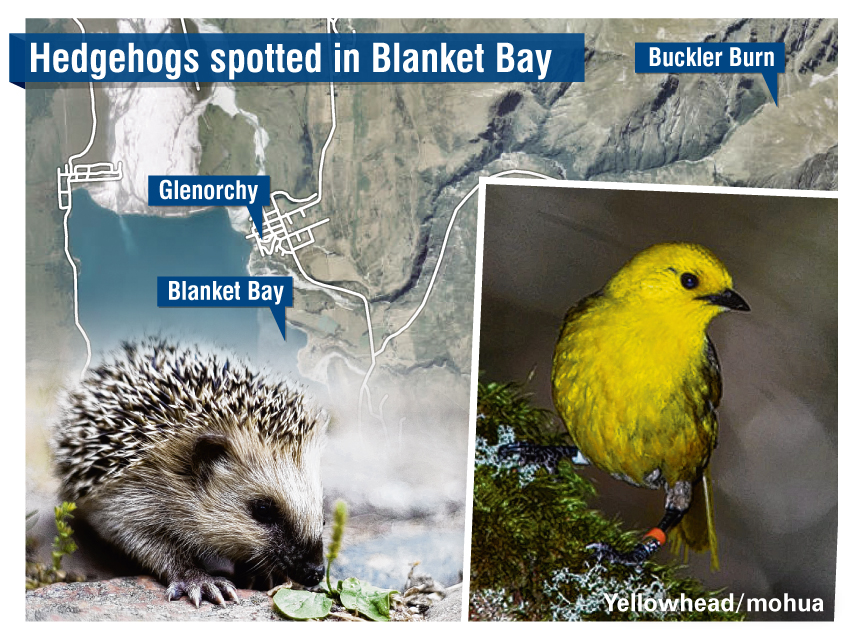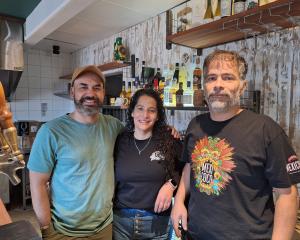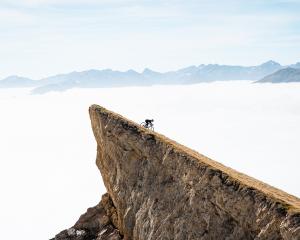
The Routeburn Dart Wildlife Trust has proposed increasing predator control in the Routeburn and Dart Valleys by installing more traps to stop hedgehogs eating the eggs of breeding birds and causing harm to or killing the chicks of ground-nesting birds.

"Most species at risk in the Routeburn and Dart valleys nest in places that predators find easy to access, so it's our job to save native species from becoming extinct."
Helicopter operator Heli Glenorchy will be donating funds to the trust from flight time auctioned on TradeMe.
Mr Hughes said the money raised through the fundraising scheme could be spent on hedgehog traps by the Buckler Burn or to maintain the existing 601 traps installed as part of the new Dart and Rees rivers trapping project.
Geoff Owen, Department of Conservation (Doc) operations manager for the Wakatipu District, said Glenorchy is "potentially within the natural range for hedgehogs".
He said Doc draws on its experience of hedgehogs having a "devastating impact" on the braided river beds of Canterbury - braided river systems not unlike the Rees and Dart rivers.
"As there have been reports of hedgehogs within 2km of Glenorchy, we are supportive of any activity which helps reduce the risk of further predators reaching our braided riverbed nesting colonies.
"Hedgehogs eat a lot and have been estimated to consume 160 grams of invertebrates per hedgehog per day."
Wakatipu Wildlife Trust community groups have reported higher rates of hedgehogs being caught in the region this past year.
The trust's executive officer, Ting Zhang, said recent Landcare Research studies showed the negative impact introduced hedgehogs had on native species, including invertebrates, lizards, and the eggs and chicks of a range of native birds.
"It would be important to prevent the spread of hedgehogs to the head of the lake, especially considering the amount of threatened native species in the Glenorchy and Routeburn region.
"Community conservation groups in the area are continuously expanding trapping projects to help stem the existing pervasion of introduced predators and to prepare for re-invasion or future invasions of predators that may wreak havoc on our native species."
Mr Owen said Doc was fortunate to have both trusts adding "significant value to the department's predator control work".
"They have energised our community to take action, be it on a landscape or my backyard level - to ensure the bird song endures and remains music to the ears of our children, their children and the generations to follow."












